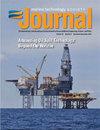The Sea Change Needed for Gender Equality in Ocean-Going Research
IF 0.7
4区 工程技术
Q4 ENGINEERING, OCEAN
引用次数: 3
Abstract
Abstract Since the 1950s, there has been an increase of women participating in ocean-going science. However, the number of women scientists in the field remains significantly less than that of men, especially in senior roles. In this commentary, we take a feminist perspective to understand the challenges women face in pursuing a career in ocean-going science. Based on the limited literature and reports of women in ocean-going research, we identified several cultural and structural barriers and constraints faced by women. These fell into four main categories: (1) behavioral/social norms and gender-biased culture in science and at sea; (2) failure to provide for balancing duties of family care with extended periods away from home; (3) gender-insensitive design of ship facilities, operations, and personal protective equipment (PPE); and (4) the need for a safe working environment at sea; i.e., gender-related aspects of health, safety, and personal security at sea. To overcome these barriers, the following interventions are suggested: (1) greater awareness raising and training to shift destructive mindsets as well as affecting behavioral and cultural change; (2) consideration of gender-sensitive design and safe operation of research vessels; and (3) more comprehensive and effective implementation of gender equality policies for research at sea.远洋研究中性别平等需要海洋变化
摘要自20世纪50年代以来,参与海洋科学的女性人数有所增加。然而,该领域的女科学家人数仍然明显少于男性,尤其是担任高级职务的女科学家。在这篇评论中,我们从女权主义的角度来理解女性在追求海洋科学事业时所面临的挑战。基于女性在远洋研究中的有限文献和报告,我们确定了女性面临的一些文化和结构障碍和制约因素。这些主要分为四类:(1)科学和海上的行为/社会规范和性别偏见文化;(2) 未能在家庭护理职责与长期离家之间取得平衡;(3) 船舶设施、操作和个人防护设备的性别敏感性设计;以及(4)需要一个安全的海上工作环境;即海上健康、安全和人身安全的性别相关方面。为了克服这些障碍,建议采取以下干预措施:(1)加强意识提高和培训,以改变破坏性的心态,并影响行为和文化变化;(2) 考虑研究船的性别敏感设计和安全操作;以及(3)更加全面和有效地执行海上研究的两性平等政策。
本文章由计算机程序翻译,如有差异,请以英文原文为准。
求助全文
约1分钟内获得全文
求助全文
来源期刊

Marine Technology Society Journal
工程技术-工程:大洋
CiteScore
1.70
自引率
0.00%
发文量
83
审稿时长
3 months
期刊介绍:
The Marine Technology Society Journal is the flagship publication of the Marine Technology Society. It publishes the highest caliber, peer-reviewed papers, six times a year, on subjects of interest to the society: marine technology, ocean science, marine policy, and education.
 求助内容:
求助内容: 应助结果提醒方式:
应助结果提醒方式:


